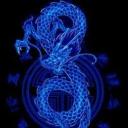Yahoo Answers is shutting down on May 4th, 2021 (Eastern Time) and the Yahoo Answers website is now in read-only mode. There will be no changes to other Yahoo properties or services, or your Yahoo account. You can find more information about the Yahoo Answers shutdown and how to download your data on this help page.
Trending News
What computer programing language is the easiest to learn?
in order from easiest to hardest to learn, please list computer programing languages.
14 Answers
- 1 decade agoFavorite Answer
Depends.
Nearly everybody will tell you that the programming language he uses is the easiest to learn, but:
If you never wrote programs before, Forth will be the easiest one to learn for you.
If you are a creative person, look at Forth.
Starting Forth is a matter of minutes.
Here what Wiki-books says:
The Forth language is a stack-based language designed for rapid interactive programming...
Forth is interesting because it can be simple and small, yet it allows for remarkably powerful extensions to be written in Forth itself... Forth is most often used to write embedded applications.
Forth emphasizes a number of classic computer ideas, such as
one pass compilation
factoring and subroutines
interactivity
making an application to get a result greater than the sum of its parts.
Many ritual necessities of other languages and required designer syntax falls away.
And "Forth on Robots" says:
Forth is an extensible language, giving the user great flexibility to extend it.
Forth is:
interactive - lets you directly read and control I/O devices from the keyboard
transparent - you can see and modify any and all of Forth from the keyboard and
fast - typically runs at 90% of assembly language speed,
powerful - because of its clean extensibility.
And I say:
I worked with Forth for many years, both on different kinds of microprocessors and on different kinds of PCs, and I could always achieve the results I liked to get. Often enough people told me they have to choose another programming language because the language they used could not solve their problem. This will not happen when using Forth, because Forth is extensible. If you need help, there are several Forth groups on Yahoo. I myself work now with visualFORTH, which is like visualBasic, but easier to learn because of Forth, you can download visualFORTH from http://www.visualforth.org/
A good introduction for starters is Leo Brodie's "Starting Forth" which is now on the web on http://home.iae.nl/users/mhx/sf.html.
To start Forth on your PC, you can download Win32Forth from http://sourceforge.net/projects/win32forth/, or you can get a Free Download SwiftForth Evaluation System at http://www.forth.com/swiftforth/dl.html
Even if you think another language may suit you better, read Leo Brodie's "Thinking Forth", it will help you very much in every programming language. "Thinking Forth" has five stars on Google-Books: http://books.google.com/books?id=1AlWbXItiCYC or you can download it at SourceForge:
http://cdnetworks-us-2.dl.sourceforge.net/project/... or buy it at Amazon: http://www.amazon.com/Thinking-Forth-Leo-Brodie/dp...
Source(s): http://www.forth.com/forth/ http://en.wikibooks.org/wiki/Forth http://www.angelfire.com/in/zydenbos/WhatisForth.h... http://www.hbrobotics.org/wiki/index.php5/Forth_on... http://www.computerworld.com.au/article/250530/a-z... http://www.dmoz.org/Computers/Programming/Language... http://en.wikipedia.org/wiki/Forth_(programming_la... http://www.computer-books.us/forth_1.php http://home.iae.nl/users/mhx/sf0/sf0.html http://www.forth.com/starting-forth/ - DinLv 61 decade ago
There is no absolute, universal 'easiest' language. Some are easy for some people to learn but not so easy for others, and vice versa.
Python is one of the easiest to learn and highly recommended for beginners. BASIC is also fairly easy to learn, but some people believe BASIC teaches programmers bad habits and should thus be avoided; I'm undecided on that myself. Pascal is about the same as BASIC, at least based on what I remember from my short fling with it. C is a little more difficult (but nice and powerful), and C++ is a little more difficult than that (OOP can be ugly to learn for a beginner).
Some flavor of assembly might be considered 'most difficult,' but it's really just time-consuming to code in. You also have to be very careful about using your data in its proper context, otherwise you can get wildly unpredictable results (some are just wrong while others can corrupt other data or even crash your system). I actually prefer assembly because it removes all the abstraction other languages introduce. I can handle thinking procedurally better than an OOP approach.
You could also do programming with a hex editor, if you are so inclined. That would probably be the most difficult approach short of using binary. To do that you'd probably have to write your own compiler/assembler, and you'd have to have either an excellent memory or a very thorough yet well organized reference manual.
- 1 decade ago
Well, to be practical, a lot of high school students start off learning JAVA. I did myself back then, but now in college, I see that a lot of non- CS majors taking classes that teach Python or Jython (which I have heard as being easy), whereas CS majors can jump into JAVA, then move to C and assembly, and so on. So here's my list from easier to harder:
1. Python
2. Java
3. C
4. C++
5. Assembly
*Note that #2 to #3 were developed out of each other. JAVA is object oriented like C++ which may be harder to grasp at first, while C is not. While C is not object oriented, it give users a lot of freedom and thus responsibility, thus making it necessary to learn the in and out of how computer works.
Don't learn assembly as your first language. It's only one level above machine language (code represented in 0's and 1's)
- 1 decade ago
I think the easiest language that you could begin making cool stuff (like GUI apps that do interesting things) the quickest would be c#. C# isn't just a beginner language either. Its starting to get really popular. You can rough out program ideas very quickly with it. The only reason I recommend c# over visual basic is that I personally think visual basic is getting less popular and c# is starting to boom.
- Girugamesh!Lv 51 decade ago
Um...what? There are a TON of languages out there. Easiest? Probably something simple like Python, maybe an obj-C language like Java. BASIC variants are pretty easy to pick up, but they're pretty limited and old. Hardest? Probably assembly.
But then again, I haven't exactly dabbled in every language out there.
- Anonymous1 decade ago
Visual Basic is the easiest, C++ is the hardest
To learn some of these for free , you can go here, they got some lessons on video
- Anonymous1 decade ago
First of all VB.NET and Python are the easiest ones to learn. C is harder, so is C++. So yeah, Visual Basic would be a great start as its user-friendly, especially if your making a windows app, basically gives you a blank GUI and straight forward options and settings. Not to mention it gives you the tools.
- Andy DLv 41 decade ago
Basic is easiest, but not visual basic.net
I've been teaching pascal recently and the group took to it really well. Heard good things about c#
C++ is a bit harder
- Anonymous1 decade ago
C is the easiest and Visual Basic is the hardest.
- Anonymous1 decade ago
Math its the universal language it will always make sense in any language






